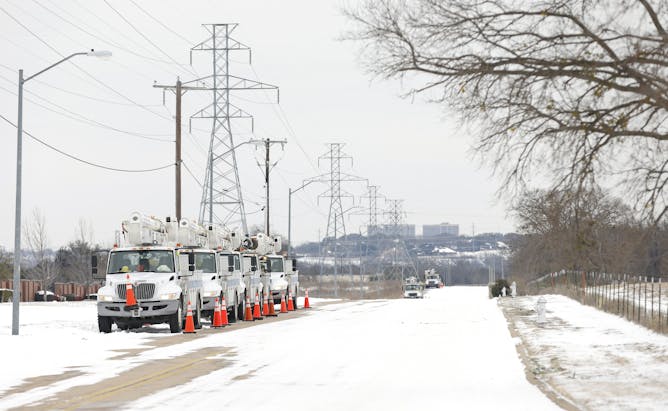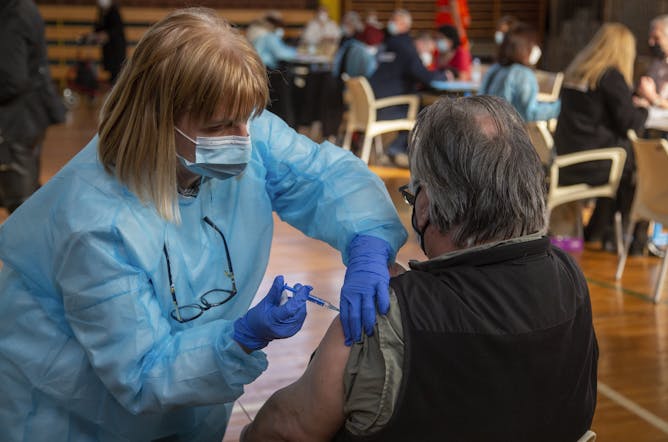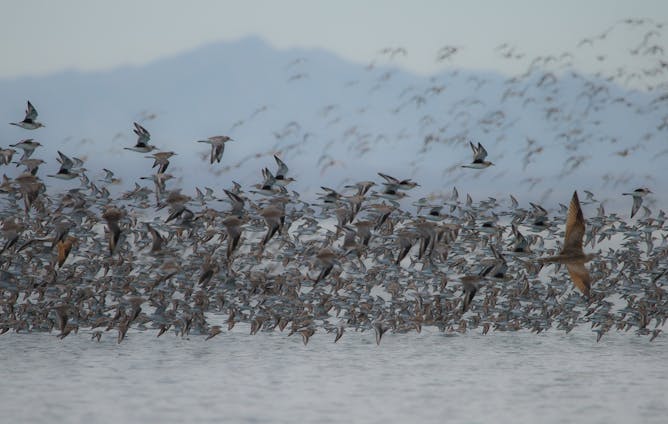|
Welcome to this week’s science newsletter, featuring articles written by researchers and scientists. Here are highlights from the past week.
Grid planners have tools to better handle climate extremes. The tragedy of the Texas blackouts last month that left millions of people without power, water and heating underscores the need to build infrastructure that can withstand extreme weather events. Purdue industrial engineer Roshanak Nateghi writes that there is a lot of available science and technology to do so already. Planners can use the latest climate models and sophisticated AI-based systems to predict energy supply and demand. And diverse energy sources can provide backup, such as renewable energy with batteries at critical natural gas distribution points.
Vaccinations appear to reduce transmission of the coronavirus. University of Washington immunologist Deborah Fuller parses the latest research on patients who have received the COVID-19 vaccine and explains why vaccinated people are less likely to pass on the virus. Citing a recent study in Israel, she says vaccines appear to reduce the amount of virus infected people “shed,” which can greatly reduce the chances of spreading it.
Transmitters track wintering shorebirds in northwest Mexico. Ornithologist Julián García Walther takes you to the mudflats of the Punta Banda Estuary in Mexico, where he describes the power of Motus stations to give biologists data on migratory bird patterns during the nonbreeding season. That knowledge will feed conservation efforts for a number of species, including the red knot birds he focuses on.
Below are more science, health and environment stories. Thanks for reading, and please respond to this email with what you’d like our science team of editors to cover.
|

Electric service trucks line up after a snow storm in Fort Worth, Texas, on Feb. 16, 2021.
Ron Jenkins/Getty Images
Roshanak (Roshi) Nateghi, Purdue University
There will be more weather-driven disasters like February's deep freeze in Texas, and energy planners aren't prepared.
|

Vaccinated people are wondering whether they can ease social distancing and mask-wearing.
AP Photo/Darko Bandic
Deborah Fuller, University of Washington
You've been vaccinated; can you now safely see your friends and family? New research hints that vaccinated people may be less likely to transmit the coronavirus, but they are not 100% in the clear.
|

Shorebirds gather by the thousands at important feeding and resting areas, but how individual birds move among sites remains a mystery.
Julian Garcia-Walther
Julián García Walther, University of South Carolina
In northwest Mexico, biologists are building a network of radio towers to track how individual migratory birds move among important wetland areas.
|